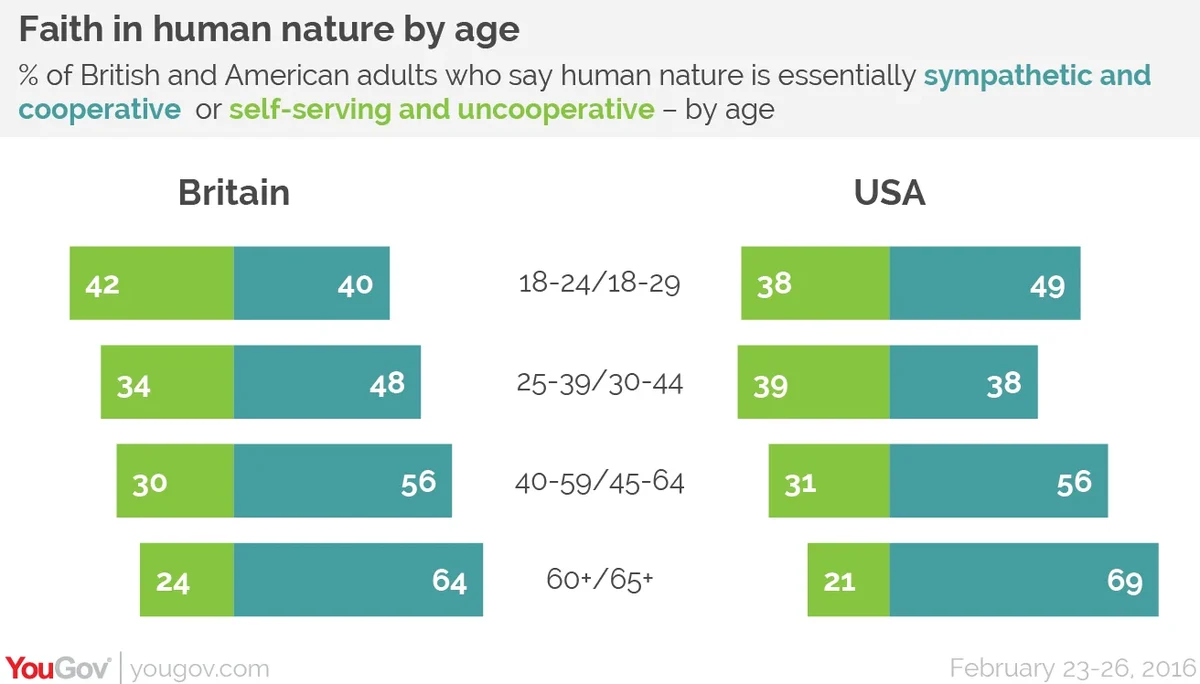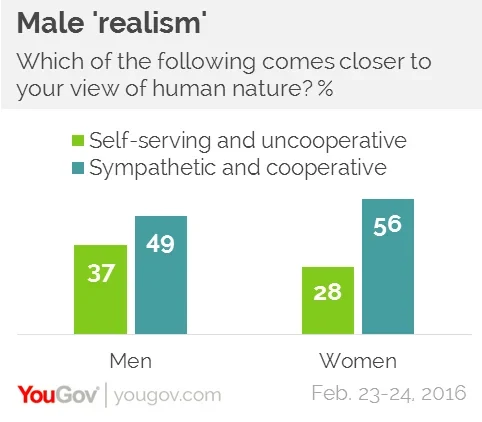In both Britain and America older people are more likely to say humans are essentially cooperative rather than self-serving
It might be the first question in philosophy – are we essentially good or bad? Experts sound lofty when they discuss it but everyone has a measure of other people which forms their basic worldview. New YouGov research looks at three foundational disputes about human nature and society which have informed theory for centuries, revealing an unlikely alliance on human nature.
There are only two demographic groups in Britain who are more likely to say human nature is basically self-serving and uncooperative rather than cooperative and sympathetic – young people (42% uncooperative, 40% cooperative) and UKIP voters (49% uncooperative, 40% cooperative).
Overall most people (52%) say humans are cooperative while a third (32%) say they are self-serving, but in both Britain and the US the belief that people are essentially cooperative decreases, rather than increases, with younger generations. In both countries less than half of under-40s hold the optimistic view compared to over a third of the oldest generation.

Traditionally right-wing theories have adopted the uncooperative view of human nature, and Conservatives (41%) are more likely to take this view than Labour voters (32%). But young people are less likely to be right-wing, so why the 'realism'? Might it be an expression of dissapointed idealism, as when a young Ed Miliband fan diagnosed Labour's loss in May: “Ed Miliband’s too good for this f*cking country to be honest”?

Men are also slightly more likely to take a dim view of human nature (49% cooperative, 37% uncooperative) compared to women (56% cooperative, 28% uncooperative).
While there is broad consensus that human nature is fairly flexible (62%) rather than more or less fixed (24%), again UKIP voters are the most likely to take the realist view (33% say it is fixed).









